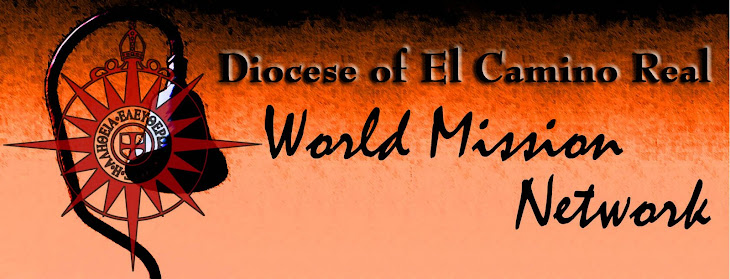From the Very Rev. David Bird, Ph.D., Trinity Cathedral:
Dean’s Desk, June 2009 issue of The Carillon (reprinted with permission)
“Can anything good come out of Nazareth?” asked some of Jesus’ critics. “A prophet is not without honor except in his hometown and in his own household," said Jesus.
A strong current of tension runs through the gospel accounts of Jesus’ ministry and never more so than when he is at home. For such reasons I have often wondered whether it is indeed a good idea, as so many of us do, to go back home when we begin our ministry or whether we should start afresh somewhere else.
Faithful to tradition, however, I began my ordained ministry in the very diocese in which I had been confirmed as an adolescent. In a little under three years I was working in the United States, initially intending it to be a short term arrangement to learn particular skills before returning home.
Almost thirty-seven years later, this May, I returned to work in England for a week and found myself enthralled by comparing our religious cultures and understandings.
Undoubtedly we have much to learn from one another. There is a sense of permanence to the life of the Church of England that is beguiling and probably false. There is, by contrast, a sense of invention and creativity to the American church—and yet, in so many ways, we live in a much tighter liturgical straightjacket than some of the inventive parishes and ministries we were privileged to visit in the Diocese of Gloucester.
To see some of our English colleagues working in beleaguered housing estates (their equivalent of ‘projects’) was heart-warming. On a Saturday afternoon, we visited one church in which one of the groups meeting there was of the Baha’i faith and deeply concerned to see inter-faith cooperation in this troubling and financially troubled neighborhood. Their goal: to establish better community relations and encourage people to live by the Golden Rule (treat others as you would have them treat you). Here was potential for inter-faith witness and even worship.
On the surface, of course, we seem so much more progressive than the Church of England. The ordination of women to all orders of ministry is something we now take for granted. Here was a national Church still struggling towards the ordination of women as bishops. And yet the joy with which they welcomed our bishop was wonderful.
From us they could learn something about the fullness of ministry when it is truly representative of God’s people. In them we saw the church acting as a community of churches called to shared ministry with their bishop rather than a set of individual parish congregations—they were living out a vision we have committed to in this diocese.
Whenever we step out of our safe and customary environment, we are able to see possibilities in our own situation and even develop ideas we already accept but are still working towards.
We also saw reasons for the parallel but sometimes different paths of our respective journeys as members of the Anglican Communion. Our individualism as parish communities has some grounding in the particularly American experience of episcopacy. For the one hundred and sixty-nine years of the American colonies before 1776, we had to do without a resident bishop. The colonies were three thousand miles away for the Bishop of London (then our only bishop), most of which meant traveling by boat for a visitation. Doesn’t it make sense that in the American Church the bishop shares responsibility with a standing committee? The development of the standing committee was essential to the management of the church in our distinctive missionary situation and led to an expression of shared ministry which we model for much of Anglicanism.
Our distinctiveness comes home when we think of some of the great Episcopalian figures in US history— Washington, Jefferson, Franklin, Hamilton— and realize that together with so many of their contemporaries they had not been confirmed (then a requirement before taking communion) but were communicants of the church only through a special rule or canon which said that if you desired to be confirmed but could not be because of local circumstance you were permitted take communion. Is it any wonder that the USA adapted to the principle, enshrined in our 1979 prayer book, that baptism constitutes full membership of our church?
If I left Britain with one idea in mind it was that the companion relationship which we have with the Diocese of Gloucester, England and the Diocese of Western Tanganyika in Tanzania will locate in a fellowship of diverse church experiences which can lead to the Holy Spirit’s powerful witness among us. For that we surely thank God.
-David




